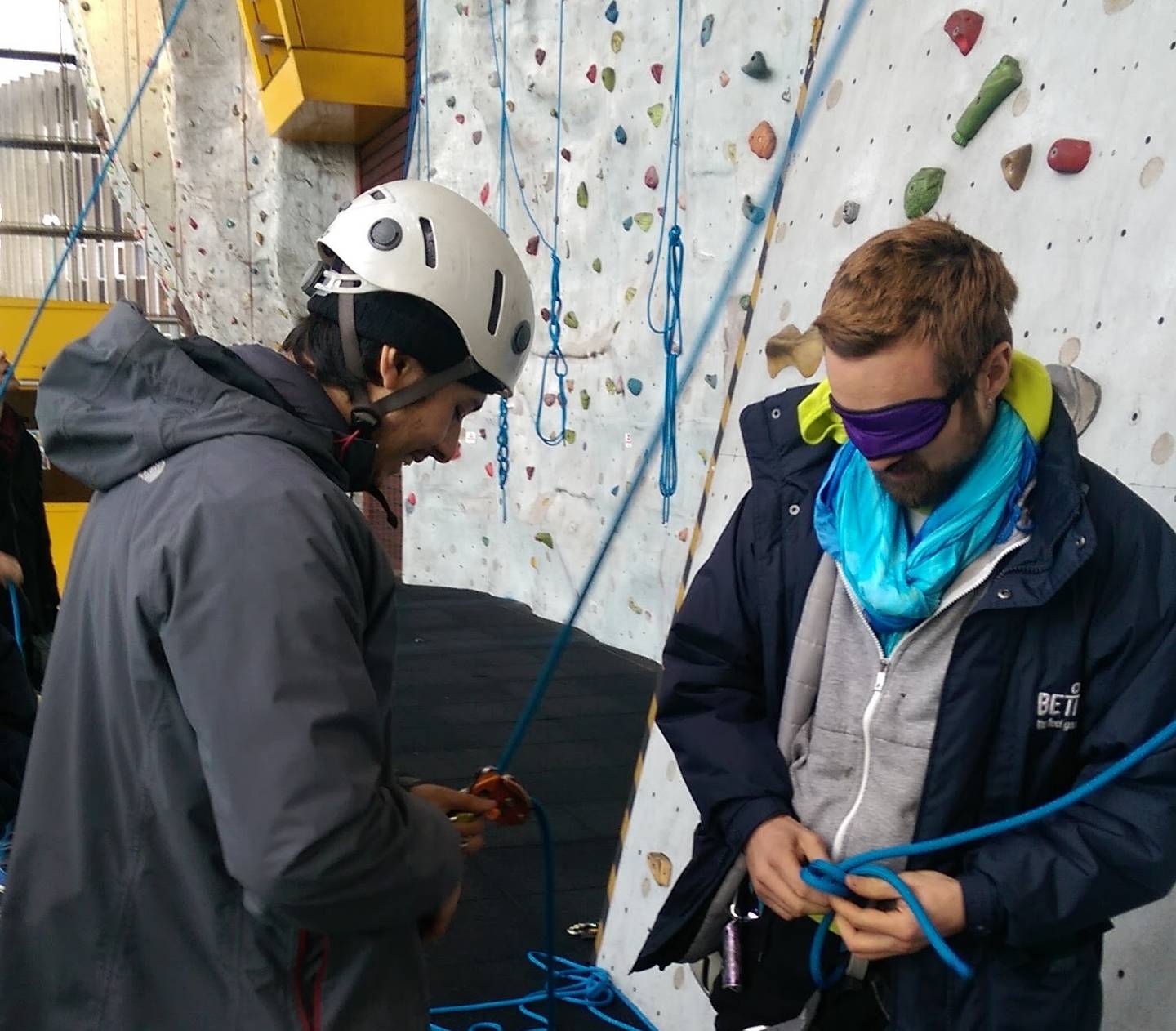The climbing course that aims high for inclusivity
Accessible sports and outdoor activities campaigner, Graeme Hill, delivers the Climbing for All course, which gives instructors the tools to engage disabled people more effectively in climbing. Here, he talks about using Activity Alliance’s insight and resources to support more workforce to be inclusive.

Most disabled people are not as active as they would like to be. But that’s not because disabled people or those with long-term health conditions don't want to be active. Activity Alliance research found that seven in ten disabled people want to increase how active they are.
We can all do more to reduce the barriers that disabled people face in sport logistically, physically and psychologically. Those organising activities and the Climbing for All course are aiming to do just that.
Graeme Hill, a mountaineering instructor, has been delivering Climbing for All courses. For more than ten years he has provided the Mountain Training Association accredited Continual Personal Development course.
“The aim of the course is to provide increased climbing opportunities for disabled people by providing climbing instructors with more skills and confidence in delivering sessions.”
Climbing for All is a one day course providing an introduction to engaging and instructing disabled people in climbing. It also provides an opportunity to test coaching skills in new territories. Graeme continues:
“Our course encourages instructors to develop a positive and person-centred attitude towards delivery.”
As well as using the Social Model of disability to achieve this, Graeme also uses Activity Alliance’s research and insight, one of which is our Ten Principles work.
“As the course progresses we start to look far more closely at models of disability and societal attitudes. At this point I introduce Activity Alliance’s ten principles video and task attendees to do an exercise based around the ten principles, asking them to look at how they could deliver their sessions more effectively.”
Our ten principles come from our Talk to Me report, released back in October 2014. This report outlines ten principles developed with disabled people that sports providers should follow to help make their activities more appealing. Graeme tells us why he uses the ten principles.
“The ten principles provide a very easy to understand breakdown of what impacts on inclusion and accessibility. It is also very easy to understand and to work through, providing easy to reach targets.
“My advice to other providers wanting to embed Activity Alliance’s ten principles is to watch the video, read the report, and work through the principles and start applying it to the real environment.”
Over 1000 people have successfully been through the course. Gemma Hendry is one of them she tells us how the course has provided her with techniques and confidence to set up an inclusive climbing club, Able2Adventure.
"The course provided me with the techniques and confidence to set up an inclusive climbing club, where two of our members regularly compete in the youth GB para-climbing series. I now plan to share these learnings within the disability community and climbing walls of Scotland through Able2Adventure. Most of all, the course taught me it is the approach to para-climbing that is important; focus on the individuals capabilities and then look for solutions. Climbing is a fantastic activity for all with the skills you develop on this course."
Most course attendees that come through Climbing for All will have attended one of the courses provided by National Governing Body, Mountain Training UK.
“Mountain Training UK provide a very broad range of climbing instructing and coaching qualifications. They range from those that qualify you to instruct indoors through to tackling mountains in the Alps or Himalayas,” says Graeme.
“What’s different about the Climbing for All course is that it supports people who are not qualified climbing instructors because they may bring other skills - such as autism awareness or sign language skills.”
Since delivering the Climbing for All courses, Graeme has noticed a change in climbing centres.
“Accessible climbing has become part of the landscape. There are a whole number of services providing accessible climbing hubs. The Beacon in North Wales and Foundry in Sheffield are very good examples.
“Facilities now have a much greater understanding of disability and provide a much more welcoming and supporting environment. The British Mountaineering Council has its own para-climbing team and series of para-climbing competitions too.
“My advice to other providers wanting to make their classes or sessions more accessible and inclusive is attend disability awareness training sessions. Then, develop your activities with accessibility central to your policies, not as an afterthought and promote activities with images of disabled people involved. Also, don’t be afraid to challenge existing delivery but challenge it constructively with solutions not problems. Another important tip is to work with disabled people in developing your ideas as insight is key to understanding your target audience.”
Find out more about accessible climbing
The BMC has a committee called the Equity Steering group (ESG) to help guide it on matters of equity. This is composed of individuals from under-represented groups in the outdoors, as well as experts on disability, mental health and women’s participation. If you have any questions for the ESG concerning accessibility regarding climbing and walking please email: james@thebmc.co.uk.
To find out more about our ten principles please visit www.activityalliance.org.uk/ten-principles.